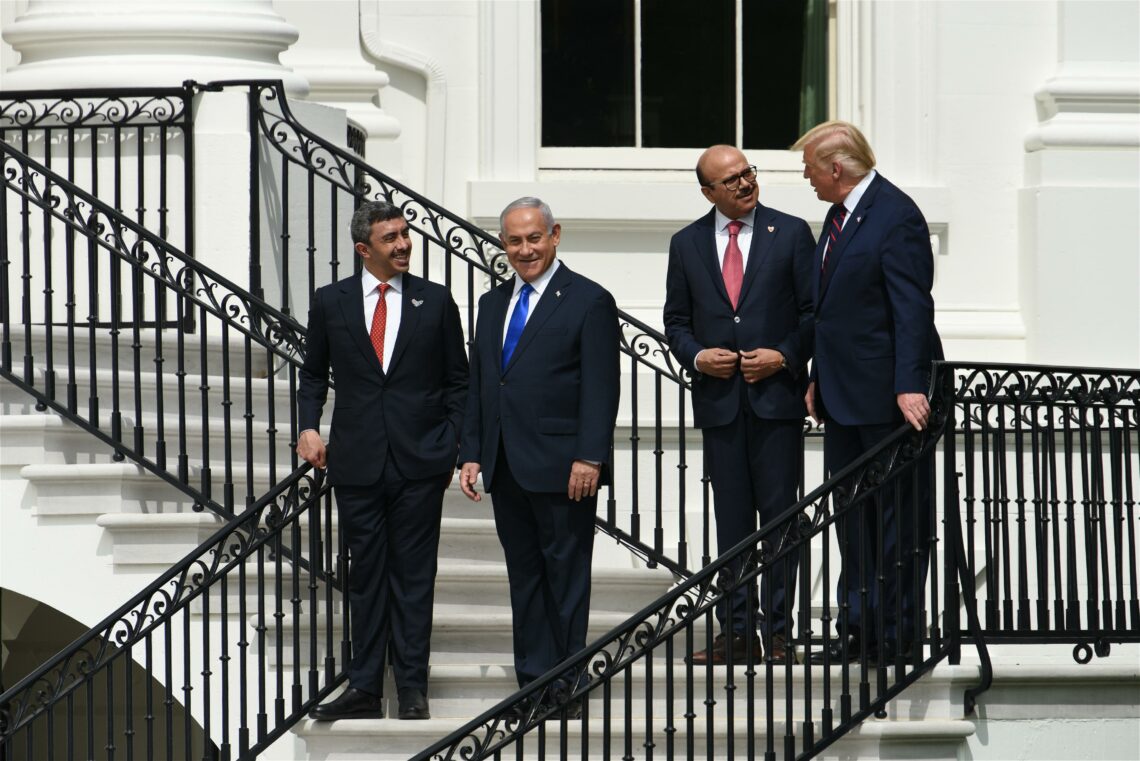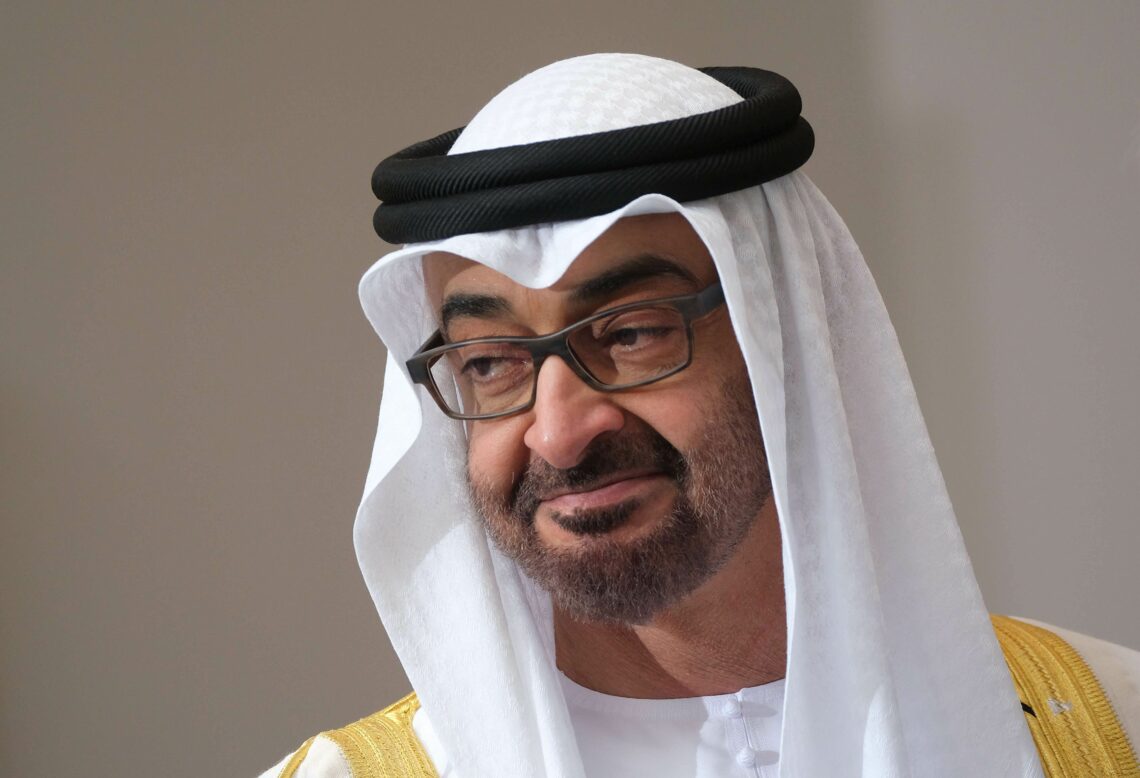The New Middle East – an Israeli perspective
The Abraham Accords, a wide-ranging normalization program recently adopted by Israel, the UAE and Bahrain, could develop broader alliances. If Saudi Arabia resumes ties with the Israeli state, Palestinians will have an additional incentive to return to the negotiating table.

In a nutshell
- The Abraham Accords mark a new phase for the Middle East
- More countries are considering an alliance with Israel
- Saudi Arabia’s next move will be decisive
The Abraham Accords, signed this September by Israel, the United Arab Emirates and Bahrain, has broken the logjam that made peace in the Middle East seem impossible.
Until recently, many believed that an alliance between Israel and the two Arab countries could not be achieved unless a solution to the Palestinian issue was implemented. This was the stance of the majority of United Nations member states – including European Union countries. Critically, the United States opposed this view.
New reality
Is the Middle East entering a new phase that no longer revolves around the Palestinian Authority, in which Arab states will decide whether to make peace with Israel solely on the basis of their own interests? Could this phase paradoxically benefit Palestinians by prompting them to adjust and enter negotiations with Israel in earnest?
The decision of the UAE’s crown prince – and de facto ruler – to normalize relations with Israel should not have taken the region and the UN by surprise. Sheikh Mohammed bin Zayed, known as MbZ, has devoted the last decade to the diversification of his county’s economy and attacked radical Islamist movements such as the Muslim Brotherhood and jihadi organizations. The carefully crafted agreement with Israel is another step in his program.
Reactions from most Arab countries were unexpectedly muted.
The signatories are “committed to working together to realize a negotiated solution to the Israeli-Palestinian conflict that meets the legitimate needs and aspirations of both peoples, and to advance comprehensive Middle East peace, stability and prosperity.” It has been seen as a call to the Palestinians to start negotiating in earnest.
Regional reactions
The Abraham Accords outline a comprehensive normalization program: full diplomatic relations with resident ambassadors; mutual recognition and the right to live in peace and security; and a joint fight against terror (meaning that Israel’s clashes with Hamas or anti-terrorist activities in the West Bank will not impact relations between the two parties).
The ninth clause of the agreement states that “in the event of a conflict between the obligations of the parties under the present treaty and any of their other obligations, the obligations under this treaty will be binding and implemented.” In other words, they will take precedence over security measures concerning the Arab League. Another clause announces a broad range of cooperation: finance and investments, civil aviation, tourism, science and technology, agriculture and energy, the exploration of outer space for peaceful purposes, the environment, and many more.
In agreeing to the Abraham Accords, Israel, the Emirates and Bahrain will devote considerable efforts to implementing these goals to demonstrate that change is possible in the Middle East. Another turning point can be seen in Lebanon’s sudden decision to enter negotiations in earnest with Israel over their maritime borders. Until now, Hezbollah had stymied the long-delayed move, which was needed so that Lebanon could exploit its offshore gas fields.
Reactions from most Arab countries were unexpectedly muted. Some refrained from condemning the agreements; some even welcomed it. The exception was, of course, the strongholds of political Islam (Iran, Turkey, Qatar) as well as governments associated with the Muslim Brotherhood (the Tunisian parliament, the prime minister of Morocco, the government of National Accord in Libya).
There was a flood of condemnations on social media, with people venting their frustration at what was perceived as a betrayal, but it did not translate into an organized movement that could have threatened the agreement. Even Syria, under strong Iranian influence, initially refrained from outright condemnation.
However, Damascus changed its tune after the announcement of the maritime border negotiations between Lebanon and Israel. Its foreign ministry issued a strong rebuke of all agreements with Israel, probably at the instigation of Iran. The Iranian ayatollahs were likely irate that their Hezbollah proxy, which rules Lebanon, had not vetoed this step toward normalization. Interestingly, Lebanese President Michel Aoun, seen as a Hezbollah puppet, declared that he was not against a peace agreement with Israel if current issues were resolved.

Overall, the media approved the rapprochement with Israel, mostly for pragmatic reasons. As Syrian political analyst Mazen Al-Olaiwy put it, “The Arabs have gained little by fighting Israel; peace is the best way to restore Palestinian rights.”
The view is not shared by the Palestinians themselves, who vehemently condemned the agreement and announced they would fight it to the end. On September 3, before the formal signature, President Mahmoud Abbas held an online conference with his archenemy, Hamas leader Ismael Haniyeh, and his number two, Saleh al-Arouri, who was responsible for terror attacks against Israel in the West Bank. Ziyad al-Nakhalah, secretary-general of the Palestinian Islamic Jihad (PIJ) organization, also participated. Once again, they were unable to decide on a common course of action. Nevertheless, Mr. Haniyeh, a Sunni, held talks with Hezbollah leader Hassan Nasrallah, a Shia. Nothing is known about the results. President Abbas then called for an emergency meeting of Arab League foreign ministers – who rejected his demand to condemn the Emiratis.
Against normalization
The real fight against further normalization with Israel will be carried out by the Shia Islamic world, and Turkey and Qatar with the Muslim Brotherhood. Tehran has issued explicit threats against the Emirates and Bahrain. Indeed, the ink was not yet dry on the agreement when the authorities in Manama disclosed they had uncovered a Shia terror cell tasked by Iran’s Islamic Revolutionary Guard Corps with targeting officials and infrastructures in the small kingdom. Saudi Arabia, still fence-sitting though it has allowed Israeli planes to enter its airspace, announced a few days later that it had made a similar discovery. Further terror attempts, which could throw the political process into disarray, are to be expected.
The Palestinian Authority watches these developments warily. It is not aligned with Iran, which is bent on transforming the region into a Shia crescent under its rule. Furthermore, Tehran openly backs Hamas and has led Hezbollah to carry out terror attacks in the Palestinian territories. Turkey, too, backs Hamas, and its hostility toward Egypt is not shared by the Palestinian leadership. Furthermore, allying itself with Iran or Turkey could damage Ramallah’s standing in the eyes of the EU and other countries.
Security relations and cooperation between Saudi Arabia and Israel are long-standing.
Religious institutions did not side with the Palestinians. Barely one day after the September 3 meeting, the Imam of Mecca’s Great Mosque lauded Prophet Mohammed for his good relations with the Jews – a rather startling development. It was obviously a green light given to countries wishing to normalize relations with Israel. In Egypt, the Grand Imam of al-Azhar chose to remain silent, probably to avoid another conflict with Egyptian President Abdel-Fattah El-Sisi. The Emirati religious establishment expressed its full support for MbZ’s decision. The ruler is known for his attempt to emphasize true Islamic values, as opposed to extremism and terror.
Oman and Sudan, where Secretary of State Pompeo’s efforts are beginning to bear fruit while Morocco, and Mauritania, Djibouti and the Comoro islands – all members of the Arab League – are still undecided, although they have expressed an interest to eventually join the rapprochement with Israel. In the past, they followed its directives regarding the Palestinian issue, although it had no real relevance for them. Saudi Arabia’s decision will likely tip the scales one way or the other.
Riyadh’s move
Security relations and cooperation between Saudi Arabia and the Jewish state are long-standing. Riyadh has no doubt given its blessing to the agreement; otherwise, it would not have opened its airspace to Israeli civilian planes. But its position is complex. Not only is Saudi Arabia the custodian of Islam’s holiest sites, Mecca and Medina, it has also initiated the Arab Peace Initiative. Washington’s efforts, including frequent visits by Secretary of State Mike Pompeo, have thus far failed to convince the kingdom to cross the Rubicon. With the uncertainty surrounding the U.S. elections, it is unlikely that a decision will come before November 3.
Much depends on the speed and scope at which the economic and strategic goals outlined in the Abraham Accords are implemented. MbZ is moving fast. Contacts between major public and private institutions have already been established. Regular air liaisons between Abu Dhabi and Israel are scheduled to begin in 2021. To facilitate travel, a mutual visa waiver has been announced. There will be a maritime line to the Israeli port of Eilat. Emirati investors are looking into the Israeli port of Haifa, spurred on by China – which is still intent on strengthening its Belt and Road Initiative. These advances on the ground could be the decisive factor convincing other states to join in.
Here, too, the results of the American elections will carry great weight.
A strong front against such agreements, led by the Palestinians, is therefore unlikely to emerge. Additional Arab countries will wait on the sidelines to see how the UAE’s and Bahrain’s agreements with Israel play out, keeping a wary eye on the moves of the tenets of political Islam. Much will depend on the level of violence unleashed and the way Israel and the Gulf states respond. Nevertheless, it does not seem that MbZ’s initiative could be reversed.
Palestinian leaders are not yet ready to return to the negotiating table. If more Arab states join the normalization movement, they may be induced to support some of the Palestinians’ demands to make up for their “betrayal,” so to speak. Here, too, the results of the American elections will carry great weight. Democratic candidate Joe Biden’s victory would not halt the process, though more emphasis would be placed on solving the Palestinian issue. Such a solution, if obtained through direct and sincere negotiations, would be welcomed by Israel, a country that wants to live in peace with its closest neighbors.








